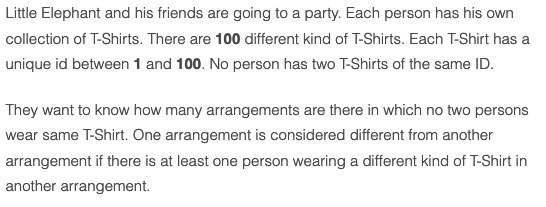Ajay
Isn't it something like no. of ways of distributing r things(t-shirts) to n people which is => C(n+r-1, r-1) ?
C(n+r-1, r-1) is another formula, it does not help in this problem.
E.g. consider N=101.
Answer is, obviously, 0.
But C(101+100-1, 100-1) is nonzero

